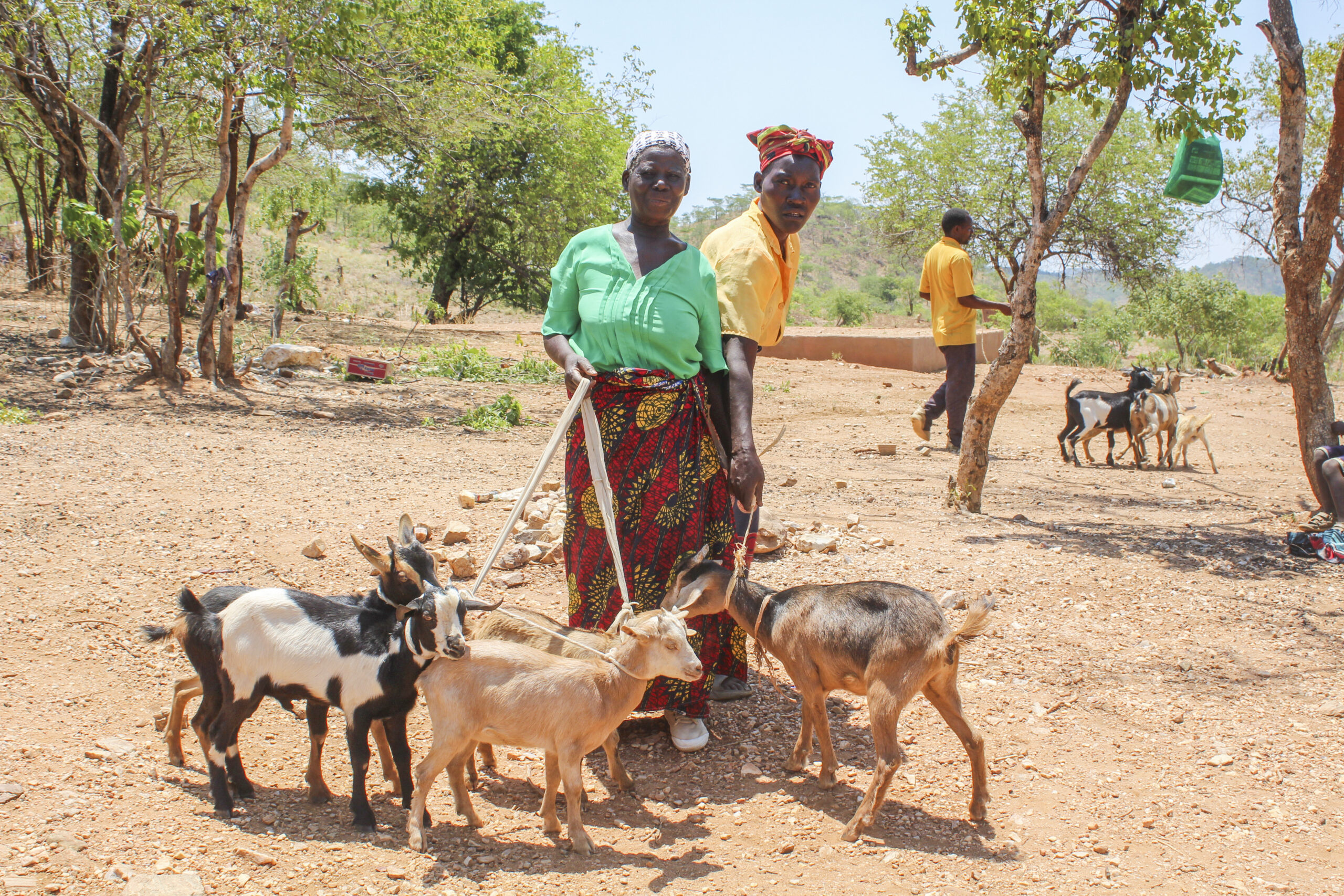
By Natasha Mhango
Gweembe district in Southern province is a valley, which means its inhabitants are subject to high temperatures and unpredictable rainfall patterns. These conditions are challenging for any farmer. Furthermore, the prolonged drought of the 2023/2024 farming seasons affected the area, therefore worsening the already harsh conditions.
In the heart of a region plagued by extreme heat and aridity, a group of small livestock farmers who received a livestock package from Enhanced Smallholder Livestock Investment Programme (E-SLIP) demonstrated extraordinary resilience and ingenuity, turning adversity into opportunity. Their story is a testament to the power of community, adaptability, and sustainable practices in the face of environmental challenges.
In 2023, farmers of the Hauma area of Gweembe were empowered with a livestock package of 40 goats which they shared equally among 8 beneficiaries.
“We received five goats each and were expected to pass on five once the offspring was born. We have successfully managed to pass on these goats despite the challenges that the prolonged drought posed on us,” Mr Hitrun Hauma said.
Mr Hauma was born and raised in Gweembe where goats are the preferred choice of livestock for farmers. Though he has lifelong experience with rearing goats, he and many farmers have struggled with challenges that livestock are bound to encounter in dry arid areas.
Once such challenge was heart water disease – a tick borne disease which affected some farmers in the community. Instead of giving up, the goat beneficiaries chose to adapt.
“Some beneficiaries lost goats to heart water disease but each beneficiary was responsible for replacing the goat that they lost and that’s how come we have been able to pass on to new beneficiaries as per guidelines by E-SLIP,” he explained.
Goats are known for their adaptability and resilience, especially in dry, arid regions where survival is a daily challenge. These hardy animals have evolved unique physiological and behavioral traits that enable them to thrive where other livestock might struggle.
One of the key factors contributing to the resilience of goats in arid regions like Gweembe is their dietary flexibility. Goats are natural browsers, meaning they prefer to eat leaves, twigs, and shrubs rather than just grass. This browsing behavior allows them to consume a wide variety of plant species, many of which are drought-resistant and can survive in harsh conditions. Their ability to digest tough, fibrous plant material also means they can extract nutrients from vegetation that other animals might find indigestible.
Beneficiary farmers in Hauma maximized on these qualities and this resilience of goats is having significant implications for human communities in Gweembe. They provide a reliable source of milk and meat contributing to food security and economic stability.
One of the requisites for beneficiaries of the livestock packages under E-SLIP is to pass on the livestock packages to new beneficiaries. This transition is crucial for the sustainability of rural livestock farming communities as well as ensure the continuity of E-SLIP interventions in livestock stocking and restocking.
Jester Choongo was one of the beneficiaries of the pass on. At 58, her life has been a series of battles against nature most especially in Gwembe where the sun beats down relentlessly. The 2023/2024 drought pushed her to the brink and being a beneficiary of the pass on felt like a lifeline.
“Passing on this livestock is necessary because we’re not just helping ourselves but we’re building a future for youth,” Ms Choongo said.
Passing on animals despite a harsh drought is a noteworthy event as it gives farmers in Hauma hope that they can reshape the livestock productivity in their area.
E-SLIP’s Restocking and Stocking Specialist, Mweni Mwape, explained that the pass on was an indicator of sustainability of the intervention and therefore longer term impact on the community.
“In light of the 2023/2024 drought we saw crop failure in Gwembe district and as an insurance fall back in terms of resources, households have been depending on livestock as a source of income to buy their maize and mealie meal for their food security,” Mr Mweni observed.
He added that E-SLIP has placed 200 goats in the entire Gwembe district with over 50 households having benefited from the pass on scheme.
This passing on of goats in Gwembe is more than about receiving livestock but about resilience exhibited by the beneficiaries amidst harsh weather changes. It is assurance that farmers in the area will continue to thrive despite their challenges, one shared success story at a time.
